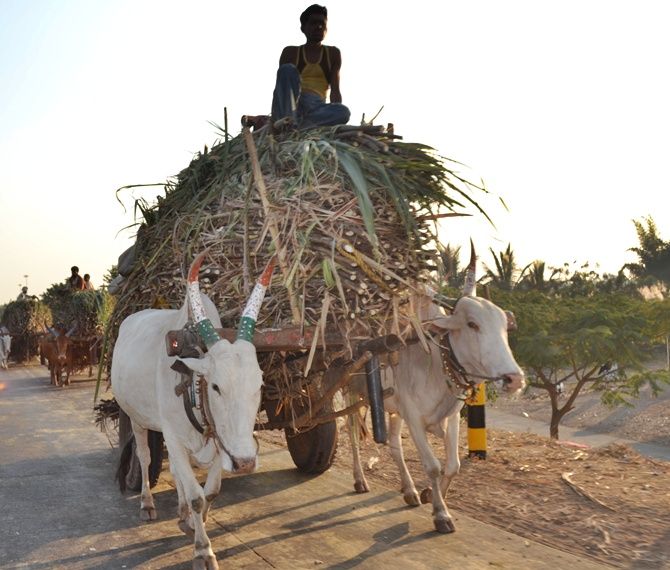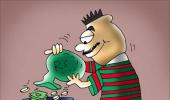Whereas the headline growth rate appears very respectable, India needs faster to growth to generate jobs for millions of young people joining the workforce each year.
 Having made four reductions in 2015, the Reserve Bank of India (RBI) will likely cut interest rates once more in the coming year, despite expectations that inflation will rise slightly above its medium-term target, a Reuters poll found.
Having made four reductions in 2015, the Reserve Bank of India (RBI) will likely cut interest rates once more in the coming year, despite expectations that inflation will rise slightly above its medium-term target, a Reuters poll found.
The survey of 28 economists taken this week showed expectations haven't changed much in the past three months, reflecting how India's steady, if unspectacular, economic performance looks relatively solid compared with peers.
Economic growth picked up only modestly last year, despite high hopes for a wave of long-awaited economic reforms from Narendra Modi's government. Many analysts now say modest growth is likely to remain for some more time.
"India continues to experience moderate inflation and only a gradual uptick in economic activity," wrote Siddhartha Sanyal at Barclays, one of the two analysts calling for a more than 25 basis point cut in the RBI's repo rate, currently 6.75 per cent.
Still, this is a better outlook than for some fellow emerging market economies, like China, where growth forecasts have been reduced modestly but financial market turmoil since the start of the year suggests greater problems.
India is likely to comfortably maintain a faster growth rate than China over the next few years. The most pessimistic forecast for growth next year in India matches the most optimistic figure for China - 7 percent.
India's economy is expected to expand 7.5 percent in 2015/16 and at a slightly faster 7.8 percent in 2016/17, the same as forecast in a poll three months ago.
Whereas the headline growth rate appears very respectable, India needs faster to growth to generate jobs for millions of young people joining the workforce each year, and the economy remains hobbled by weak private sector investment.
Retail inflation has averaged 4.8 percent this fiscal year so far, but the poll predicted it would rise to average 5 percent for 2015/16, and 5.3 percent for 2016/17.
The RBI's 5 percent target for inflation by March 2017 is at risk with annual price rises of 5.61 percent in December - the fifth straight month inflation has gone up.
But even with rising inflation threatening to breach that target, 11 of 19 economists polled this week still expect the repo rate to be cut to 6.50 percent by June.
The RBI cut interest rates four times last year, by a cumulative 125 basis points, surprising the market with a few of its early moves.
Analysts also expect the government to pick up the slack in terms of providing a fillip to economic growth by passing soon at least one reform through parliament.
Thirteen of 15 analysts said it was either 'very likely' or 'likely' that the government would pass the land acquisition bill, which would make it easier for businesses to buy land, or a goods and services tax (GST), which would transform the economy into a single market, by the end of this year.
Weak global demand, along with deflationary pressures abroad, and any reforms announced at the parliament's budget session in February will be key to the economic outlook over the next year, said Rishi Shah, economist at Deloitte.
In November, a government panel recommended hiking the wages of about 10 million current and former government employees by nearly 25 percent. Pay rises could boost economic growth through higher demand.
"There will be a pay commission in effect in the next fiscal, so you're going to get demand, at least an urban boost to demand," Shah said.
(Polling by Shaloo Shrivastava and Krishna Eluri)












 © 2025
© 2025